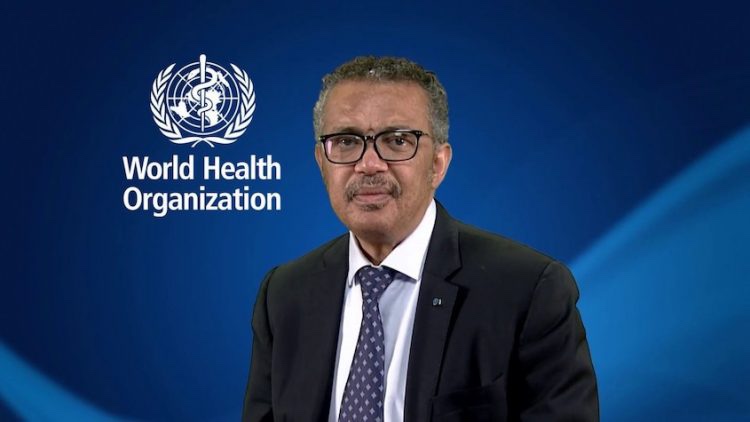CASTRIES, St Lucia, (CMC) – The Director General of the World Health Organisation (WHO), Dr Tedros Adhanom Ghebreyesus, warned that the Caribbean countries cannot open up their economies without having access to COVID vaccines.
“It is very important to advocate for vaccine equity so that the whole world could open together and we should not allow this two track pandemic to continue or the vaccine inequity to continue,” Tedros said making reference to the fact that countries with vaccines were now doing better.
“We see a two track pandemic, one the countries that have better access to vaccines are doing better, while those who have less access to vaccines, we see…increase number of cases and deaths and that’s why we say it is very important for advocating for vaccine equity.
“The Caribbean at large and the OECS cannot really open up without a vaccine,” Tedros said as he addressed the virtual Fifth Sitting of the Organisation of Eastern Caribbean States (OECS) Assembly that has brought together government and opposition legislators from the sub-region.
Tedros said that the need for equality in vaccine distribution drove the WHO, the Coalition for Epidemic Preparedness Innovations and Gavi to establish COVAX, the vaccines pillar of the Access to COVID-19 Tools (ACT) Accelerator.
“At the start of the pandemic we said the end game is finding need to acquire vaccines and that’s why we established Accelerator with two objectives,” he said, noting that it was designed to accelerate the development of technologies like vaccine and also the need for fair distribution.
He said that the situation now is that many countries are struggling with “fair distribution”.
“So we need to focus on that. We need to focus on vaccines and we need to push for vaccines now. So those countries that have better access to vaccines, share the vaccines and countries (will) open up together.
“Everybody knows the impact of this pandemic on lives and livelihoods and unless everybody is safe, I don’t think those who have better access to vaccines will be safe and in it is in their own interest by the way to share and that’s the message we are sending from the WHO,” Tedros said.
The WHO official said that for the medium and long term, apart from the vaccine sharing, increasing production of the vaccine is key “and we are already working by starting some initiatives to increase production”.
He said the intention also is by June 2022 to vaccinate at least 70 per cent of the world population.
“So we have a clear target and we are pushing and your voice will be important to push in the same direction.
“Vaccine should be the focus whatever we do in the short term and the things we do for the medium and long term,” he said, adding that the WHO was also examining the waiver of Intellectual Property as well as technology transfer through voluntary licencing or other methods.
“The proposals we have made to the high income countries, we are not talking about snatching somebody’s knowledge , especially the private sector because the private sector should be commended and appreciated but the high income countries can give some incentives as part of the stimulus package to the private sector,” Tedros stated.
St Vincent and the Grenadines Prime Minister Dr Ralph Gonsalves had during the assembly expressed disappointment that the Russian made vaccine, Sputnik V, had not yet been approved by the WHO for use in the treatment of the pandemic.
Gonsalves said that he had taken the vaccine and despite the non-approval to date by the WTO, he would be encouraging his citizens to accept doses of the vaccine.
But Tedros told the Assembly that plans were underway for the vaccine to be given the green light by the WHO.

